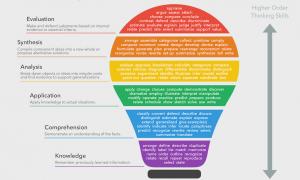Imagine two people are interviewing for a job. On paper, both candidates are very qualified. They both have degrees from prestigious schools, high GPAs, and a few years of relevant work experience.
Going into the interview, both are well-prepared. They’ve practiced all the common interview questions, dressed for success, and are ready to throw down.
After speaking to both of them, however, the interviewer’s decision isn’t even a hard one. One candidate clearly outshone the other – hiring them was a no-brainer. How can this be?
Simple. One candidate used the interview to demonstrate their soft skills. The other had never even heard that term.
Many students think that getting a job is all about qualifications and technical skills. Those don’t hurt (indeed, they’re essential), but things like how well you work in a team, how well you communicate, and how well you understand other people’s emotions are just as important.
The things I just listed are all soft skills. They’re harder to quantify than hard skills like programming, writing, or accounting, and they’re also more difficult to learn formally.
If you’ve ever taken a business class or read a business publication, you’ve probably heard these two terms thrown around. Understanding and cultivating both are essential to succeeding not just in school and work, but in life.
Today’s post will clear up the ambiguity surrounding hard and soft skills. We’ll cover what they are, which ones employers value (hint: it depends on the job), and how you can cultivate both of them (especially soft skills).
Continue reading »
 Make an impression without being a nuisance.
Make an impression without being a nuisance.






